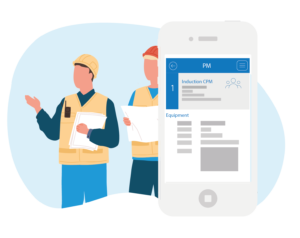CMMS: an essential tool for key tracking system for apartments
A landlord or property manager has the legal obligation to keep track of the keys distributed for a rental unit. They must exercise all reasonable caution to ensure that keys are always accounted for and only in the hands of those with the authority to possess them. The failure to appropriately track keys not only exposes tenants to potential danger, but opens the door to what might prove to be costly legal liability for a landlord or property manager.
There are other reasons why effective key tracking is a must including convenience, better structure in the work environment, and accountability.
In the absence of a well-structured protocol for key tracking, the whole process can quickly go off the rails, with potentially disastrous consequences in some cases. A wise course is to use proven CMMS software for tenant services. MRI NETfacilities has developed a truly comprehensive key tracking CMMS, among other features that can help
Property Manager Legal Liability for Tenant Safety
Of course, the primary objective of effective key tracking, including using a CMMS as part of the process, is keeping tenants safe. With that said, using a CMMS to track keys is a step that aids in satisfying a landlord and property manager’s legal obligation as it relates to the safety of the property.
While the tenant bears considerable responsibility for the safety of his or her rented home, they are not alone in that responsibility. A legal doctrine known as premises liability places specific legal responsibilities in regards to safety and security at a rental property on a landlord and, by extension, a property manager.
These responsibilities often involve regulating and maintaining the common areas and other spaces not under a specific tenant’s control. For example, the common areas of an apartment building are required to have proper illumination. If there is not adequate lighting in a common area, a landlord and property management company may be held legally responsible for the injuries, damages, and losses sustained by a tenant who becomes the victim of a crime or accident in a common area under these conditions.
The landlord and property manager’s legal responsibility also extends beyond common areas. The control of keys to a rental unit provide a prime example of this type of situation. A landlord and a property manager have a duty, or legal obligation, to keep track of the distributed keys for a rental unit.
CMMS Key Tracking and Tenant Safety
Key tracking CMMS can improve the environment and increase the safety of a tenant, while potentially lessening the possibility of crimes like burglaries and home invasions.
Tenants become particularly vulnerable to these and other types of crimes when there is no proper accountability or consistent tracking of keys.
Enhanced Convenience
A considerable amount of time is wasted while landlords, property manager, maintenance personnel, and others try to track down the keys to a rental property. Needless to say, running around trying to locate keys is a terribly inefficient use of time.
With a CMMS for key tracking, the location of all distributed keys to a particular rental property can be easily logged and located. This is vital when a tenant has sent in a maintenance request and understandably desires prompt assistance. Indeed, if an emergency exists, reliably prompt access to keys (as can be provided with CMMS key tracking) is an absolute must.
Accountability
Staff and third-party accountability is also better served when a key tracking CMMS is used. This type of comprehensive, reliable tracking system provides real-time information about who has possession of keys and how many keys are in circulation. These capabilities not only confirm who has keys at any given time, but also verify when a member of the management or maintenance team has returned the keys to a tenant’s residence after using them.
Better Structure in a Work Environment
When safety considerations and the efficient provision of services, like maintenance and repairs, come together, the need for a well-structured work environment is crucial. Through the use of a CMMS with key tracking, safety interests and effectively completing tasks, like initiating and completing maintenance requests or other work orders, can be easily accomplished.
A CMMS with key tracking capabilities will account for who is accessing property and for what reason. It also tracks the length of time an authorized individual will remain on the premises and has custody of the keys to that residence.
In summary, the benefits associated with a key tracking CMMS are far reaching. Because keys to a rental property tend to change hands frequently between tenants, maintenance workers, property managers, vendors, and so on, it is vital to have a reliable system to keep track of all keys in circulation. Having an appropriate key tracking system in place will make day-to-day operations function smoothly and increase the safety for all tenants.
Affordable Housing Asset Manager Insights: Maximize Portfolio Performance by Supporting Housing Operators
From rising operational costs to increased demand for flexibility and technology, asset managers are navigating unique challenges to support property management teams while ensuring portfolio health and resilience. Recent MRI research delves into the…

